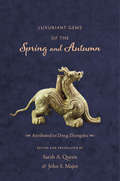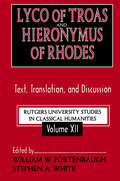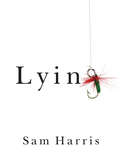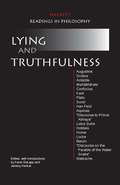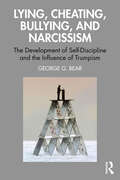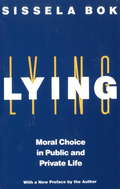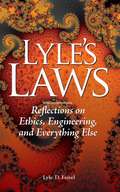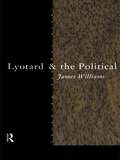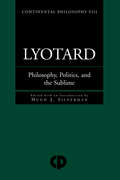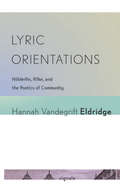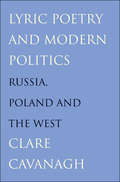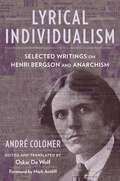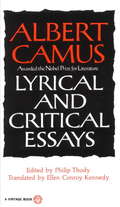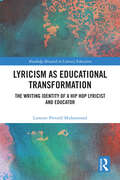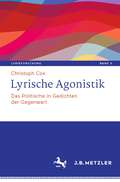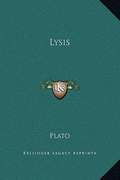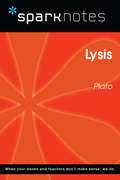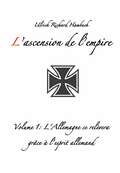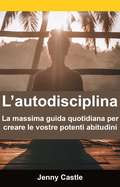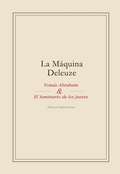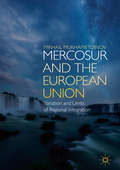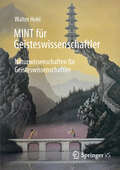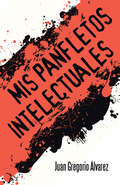- Table View
- List View
Luxuriant Gems of the Spring and Autumn (Translations from the Asian Classics)
by Zhongshu DongThe Spring and Autumn (Chunqiu) is a chronicle kept by the dukes of the state of Lu from 722 to 481 B.C.E. Luxuriant Gems of the "Spring and Autumn" (Chunqiu fanlu) follows the interpretations of the Gongyang Commentary, whose transmitters sought to explicate the special language of the Spring and Autumn. The work is often ascribed to the Han scholar and court official Dong Zhongshu, but, as this study reveals, the text is in fact a compendium of writings by a variety of authors spanning several generations. It depicts a utopian vision of a flourishing humanity that they believed to be Confucius's legacy to the world.The Gongyang masters thought that Confucius had written the Spring and Autumn, employing subtle phrasing to indicate approval or disapproval of important events and personages. Luxuriant Gems therefore augments Confucian ethical and philosophical teachings with chapters on cosmology, statecraft, and other topics drawn from contemporary non-Confucian traditions. A major resource, this book features the first complete English-language translation of Luxuriant Gems, divided into eight thematic sections with introductions that address dating, authorship, authenticity, and the relationship between the Spring and Autumn and the Gongyang approach. Critically illuminating early Chinese philosophy, religion, literature, and politics, this book conveys the brilliance of intellectual life in the Han dynasty during the formative decades of the Chinese imperial state.
Lyco of Troas and Hieronymus of Rhodes: Text, Translation, and Discussion (Rutgers University Studies in Classical Humanities)
by Stephen WhiteVolume 12 in the RUSCH series continues work already begun on the School of Aristotle. It focuses on two Peripatetic philosophers who lived in the third century BCE, when Stoicism and Epicureanism flourished. Lyco of Troas was the third head of the Peripatos after Aristotle. Hieronymus of Rhodes was a member of the school and an antagonist of Lyco.Excellence in teaching was Lyco's distinguishing attribute, but he also attracted benefactors and had the reputation of being a bon vivant. Hieronymus is best known for his work on ethics, but he also wrote on literature, history, and rhetoric. Our understanding of the work being done in the Peripatos during the third century BCE will be greatly enhanced by Peter Stork's new edition of Lyco and Stephen White's edition of Hieronymus.The two editions in this volume are accompanied by full translations as well as notes on the Greek and Latin texts (an apparatus criticus) and substantive notes that accompany the translation. The editions will replace those of Fritz Wehrli, which were made over half a century ago and published without an accompanying translation. In addition to the two editions, this volume includes ten essays that address significant themes presented by the texts. Three of the essays deal with biographical material: "Diogenes Life of Lyco" (J orgen Mejer), "Hieronymus in Athens and Rhodes" (Elisabetta Matelli), and "Peripatetic Philosophers as Wandering Scholars" (Peter Scholz). Four develop philosophical topics: "Hieronymus of Rhodes on Vision" (Todd Ganson), "The Historical Setting of Hieronymus fr. 10 White" (Peter Lautner), "Peripatetic Reactions to Hellenistic Epistemology" (Hans Gottschalk), and "Lyco and Hieronymus on the Good Life" (Stephen White). Three concern rhetoric and literature: "Lyco Phrastikos" (William Fortenbaugh), "Hieronymus on Isocrates' Style" (David Mirhady), and "Hieronymus in Ancient Commentaries on Hesiod's Shield" (Andrea Martano).
Lying
by Sam HarrisAs it was in Anna Karenina, Madame Bovary, and Othello, so it is in life. Most forms of private vice and public evil are kindled and sustained by lies. Acts of adultery and other personal betrayals, financial fraud, government corruption-even murder and genocide-generally require an additional moral defect: a willingness to lie.In Lying, best-selling author and neuroscientist Sam Harris argues that we can radically simplify our lives and improve society by merely telling the truth in situations where others often lie. He focuses on "white" lies-those lies we tell for the purpose of sparing people discomfort-for these are the lies that most often tempt us. And they tend to be the only lies that good people tell while imagining that they are being good in the process.
Lying and Truthfulness
by Kevin Delapp Jeremy HenkelThis anthology provides a set of distinctive selections that explore both Western and Eastern views of lying and truthfulness, including selections from Augustine, Grotius, Aristotle, the Mahābhārata, Confucius, Kant, Plato, Sunzi, Han Feizi, Aquinas, the Lotus Sutra, Hobbes, Hume, Locke, Bacon, Nietzsche, and more. Hackett Readings in Philosophy is a versatile series of compact anthologies, each devoted to a topic of traditional interest in philosophy or political theory. Selections are chosen for their accessibility, significance, and ability to stimulate thought and discussion.
Lying, Cheating, Bullying and Narcissism: The Development of Self-Discipline and the Influence of Trumpism
by George G. BearThis vibrant book examines individual and societal factors contributing to the rise of lying, cheating, bullying, and narcissism, with emphasis on the influence of Trumpism and the valuing of “getting things done” over the importance of self-discipline and issues of morality. George Bear explores individual and environmental factors that influence the development of self-discipline. He examines reasons for the growing prevalence of lying, cheating, bullying, and narcissism and their underlying factors, and the role of parenting and peer relationships in their development. The volume highlights the critical roles that moral reasoning, moral emotions, and mechanisms of moral disengagement play in dishonest and harmful behavior. Lying, Cheating, Bullying, and Narcissism is for students and scholars of child development, parenting, psychopathology, and criminology; professionals in psychology, mental health, and education; as well as others interested in the prevalence and roots of lying, cheating, bullying, and narcissism in America.
Lying: Moral Choice in Public and Private Life
by Sissela BokA thoughtful addition to the growing debate over public and private morality. Looks at lying and deception in law, family, medicine, government.
Lyle's Laws: Reflections on Ethics, Engineering, and Everything Else
by Lyle D. FeiselThe author brings a very personal dimension to his commentary by sharing anecdotes about growing up on a farm, parenting three children, and traveling the world. Without preaching, he offers ideas on-and acknowledges the challenges of-conducting oneself appropriately, making good decisions, and navigating tough times. Educators and students will find Lyle's Laws to be a useful guide for courses on professional ethics and career preparation.
Lyotard and the Political (Thinking the Political)
by James WilliamsLyotard and the Political is the first book to consider the full range of the political thought of the French philosopher François Lyotard and its broader implications for an understanding of the political. James Williams clearly and carefully traces the development of Lyotard's thought from his early Marxist essays on the Algerian struggle for independence to his break with the thought of Marx and Freud. This is compared with Lyotard's later, highly influental writings on the politics of desire and his attempts to base a postmodern political discourse on the sublime. An indispensable work for all who are interested in modern continental philosophy, Lyotard and the Political offers the first systematic analysis of the political dimension of the work of one of the most controversial and influential philosophers of the twentieth century. Also available in this series: Lacan and the Political Pb: 0-415-17187-3: £12.99 Heidegger and the Political Pb:0-415-13064-6: £12.99 Derrida and the Political Pb: 0-415-10967-1: £13.99 Nietzche and the Political Pb: 0-41510069-0: £12.99 Foucault and the Political Pb: 0-415-10066-6: £12.99
Lyotard: Philosophy, Politics and the Sublime (Continental Philosophy #Vol. 8)
by Hugh J. SilvermanFirst published in 2003. Routledge is an imprint of Taylor & Francis, an informa company.
Lyric Orientations: Hölderlin, Rilke, and the Poetics of Community
by Hannah Vandegrifte EldridgeIn Lyric Orientations, Hannah Vandegrift Eldridge explores the power of lyric poetry to stir the social and emotional lives of human beings in the face of the ineffable nature of our mortality. She focuses on two German-speaking masters of lyric prose and poetry: Friedrich Hölderlin (1770-1843) and Rainer Maria Rilke (1875-1926). While Hölderlin and Rilke are stylistically very different, each believes in the power of poetic language to orient us as social beings in contexts that otherwise can be alienating. They likewise share the conviction that such alienation cannot be overcome once and for all in any universal event. Both argue that to deny the uncertainty created by the absence of any such event (or to deny the alienation itself) is likewise to deny the particularly human condition of uncertainty and mortality. By drawing on the work of Stanley Cavell, who explores how language in all its formal aspects actually enables us to engage meaningfully with the world, Eldridge challenges poststructuralist scholarship, which stresses the limitations--even the failure--of language in the face of reality. Eldridge provides detailed readings of Hölderlin and Rilke and positions them in a broader narrative of modernity that helps make sense of their difficult and occasionally contradictory self-characterizations. Her account of the orienting and engaging capabilities of language reconciles the extraordinarily ambitious claims that Hölderlin and Rilke make for poetry--that it can create political communities, that it can change how humans relate to death, and that it can unite the sensual and intellectual components of human subjectivity--and the often difficult, fragmented, or hermetic nature of their individual poems.
Lyric Poetry and Modern Politics
by Clare CavanaghLyric Poetry and Modern Politics explores the intersection of poetry, national life, and national identity in Poland and Russia, from 1917 to the present. As a corrective to recent trends in criticism, acclaimed translator and critic Clare Cavanagh demonstrates how the practice of the personal lyric in totalitarian states such as Russia and Poland did not represent an escapist tendency; rather it reverberated as a bold political statement and at times a dangerous act. Cavanagh also provides a comparative study of modern poetry from the perspective of the eastern and western sides of the Iron Curtain. Among the poets discussed are Blok, Mayakovsky, Akhmatova, Yeats, Whitman, Frost, Szymborska, Zagajewski, and Milosz; close readings of individual poems are included, some translated for the first time. Cavanagh examines these poets and their work as a challenge to Western postmodernist theories, thus offering new perspectives on twentieth-century lyric poetry.
Lyrical Individualism: Selected Writings on Henri Bergson and Anarchism (Columbia Themes in Philosophy, Social Criticism, and the Arts)
by Andre ColomerIn the early twentieth century, André Colomer was perhaps the best-known figure in the anarchist movement. A poet, philosopher, activist, and public speaker, he was enmeshed in the Parisian political and artistic scene at a time of political and cultural revolution. Amid the avant-garde explosions of Cubism, futurism, and surrealism and the ferment of radical politics on left and right, Colomer became anarchism’s leading advocate. He galvanized the Parisian public through his agitational writing and organizing, as well as his involvement in a sensational murder case, while developing a distinctive philosophical account of anarchist individualism. Yet Colomer died in obscurity in Moscow, abandoned by his friends and comrades, and is scarcely known in the English-speaking world today.Lyrical Individualism presents a selection of Colomer’s crucial writings, with a focus on anarchist theory and the philosophy of Henri Bergson. It reveals the richness of Colomer’s philosophical work, particularly his creative engagement with Bergson, Max Stirner, and Friedrich Nietzsche to forge a novel anarchist ideology. Colomer’s writings not only offer valuable insights into interwar anarchism, they also present a distinctive philosophical vision that in many ways anticipates theories and debates animating radical political movements today. This book also showcases his acerbic and pugnacious political commentary on the turbulent events of the 1910s and 1920s. The first translation and publication of Colomer’s work since his untimely death in 1931, Lyrical Individualism allows a range of readers to discover this vital thinker.
Lyrical and Critical Essays
by Albert Camus'The literary output of Albert Camus was exceptionally concentrated and well organized, so that each part of it throws light on other parts. . . . Here now, for the first time in a complete English translation, we have Camus' three little volumes of essays, plus a selection of his critical comments on literature and on his own place in it. As might be expected, the main interest of these writings is that they illuminate new facets of his usual subject matter. '-John Weightman, The New York Times Book Review.
Lyricism as Educational Transformation: The Writing Identity of a Hip Hop Lyricist and Educator (Routledge Research in Literacy Education)
by Lamont Pretrell MuhammadThis volume explores the pedagogical and transformative potential of writing lyrics. Based on an autoethnographic study and inspired by Ivanič’s notion of writer identity, it explores how writing can nurture different aspects of students’ identity, allowing them to connect with and engage in their social and community background. Through an analysis of the author’s lived experiences as a Black male educator and author, Hip Hop lyricist, and curriculum writer, it details how the lyrics of Hip Hop artists served as educational experiences in his journey toward becoming a Hip Hop artist and educator, as well as how he developed his experiences into a template for his students to follow through programs such as Hip Hop Literacy.A unique and engaging exploration of lyricism, this book examines themes such as building positive classroom relationships, self-actualization, self-expression, skill acquisition, and culturally responsible pedagogy. It will be of interest to researchers and educators involved in alternative literacy practices, Hip Hop education, autoethnography, and curriculum studies.
Lyrische Agonistik: Das Politische in Gedichten der Gegenwart (Lyrikforschung. Neue Arbeiten zur Theorie und Geschichte der Lyrik #3)
by Christoph CoxAusgehend von der These, dass es sich bei der politischen Lyrik der Gegenwart vor allem um eine Lyrik des Politischen, eine lyrische Streitkultur handelt, wird in „Lyrische Agonistik. Das Politische in Gedichten der Gegenwart“ auf der Basis einer philosophischen ‚neue‘ Rhetorik und mit Rückbezug auf Ansätze der radikalen Demokratietheorie insbesondere von Chantal Mouffe und Ernesto Laclau eine neuartige rhetorische Methode zur Analyse des Politischen in der Lyrik der Gegenwart entwickelt. Grundlegend für diese Methode ist die von sophistischer Rhetoriktradition und radikaler Demokratietheorie geteilte Skepsis gegenüber allen epistemischen Letztbegründungsversuchen. Das Politische in der Lyrik der Gegenwart erweist sich im Kontext dieser beiden Bezugspunkte als die Zurückweisung fundamentaler Gründungversuche, die sich als diskursive Form der Verhandlung einer nur plausiblen, in ihrer Kontingenz stets angreifbaren Politik äußert. Ablesbar wird diese postfundamentalistische Wende in gegenwärtigen Gedichten anhand von rhetorischen Widersprüchen, die auf den unaufhebbaren konflikthaften Charakter des Politischen hindeuten, deren notwendige Gegenseite der ebenso rhetorisch ausgearbeitete Versuch ist, umstrittene Diskurse zugunsten einer nie letztbegründbaren Position zu hegemonisieren. Aufgezeigt wird das dem Politischen eigene Spiel aus Kontingenzerfahrung und Schließungsbemühungen anhand von drei disparaten Textbeispielen politischer Lyrik der letzten zehn Jahre: Tom Schulz’ „Die Maschinen sind volljährig“, Günter Grass’ „Was gesagt werden muss“ und Monika Rincks „was machen die frauen am sonntag?“.
Lysis
by PlatoNo answer is given in the Lysis to the question, ‘What is Friendship?’ any more than in the Charmides to the question, ‘What is Temperance?’ There are several resemblances in the two Dialogues: the same youthfulness and sense of beauty pervades both of them; they are alike rich in the description of Greek life. The question is again raised of the relation of knowledge to virtue and good, which also recurs in the Laches; and Socrates appears again as the elder friend of the two boys, Lysis and Menexenus. In the Charmides, as also in the Laches, he is described as middle-aged; in the Lysis he is advanced in years. The Dialogue consists of two scenes or conversations which seem to have no relation to each other. The first is a conversation between Socrates and Lysis, who, like Charmides, is an Athenian youth of noble descent and of great beauty, goodness, and intelligence: this is carried on in the absence of Menexenus, who is called away to take part in a sacrifice. Socrates asks Lysis whether his father and mother do not love him very much? ‘To be sure they do.’ ‘Then of course they allow him to do exactly as he likes.’ ‘Of course not: the very slaves have more liberty than he has.’ ‘But how is this?’ ‘The reason is that he is not old enough.’ ‘No; the real reason is that he is not wise enough: for are there not some things which he is allowed to do, although he is not allowed to do others?’ ‘Yes, because he knows them, and does not know the others.’ This leads to the conclusion that all men everywhere will trust him in what he knows, but not in what he does not know; for in such matters he will be unprofitable to them, and do them no good. And no one will love him, if he does them no good; and he can only do them good by knowledge; and as he is still without knowledge, he can have as yet no conceit of knowledge. In this manner Socrates reads a lesson to Hippothales, the foolish lover of Lysis, respecting the style of conversation which he should address to his beloved. After the return of Menexenus, Socrates, at the request of Lysis, asks him a new question: ‘What is friendship? You, Menexenus, who have a friend already, can tell me, who am always longing to find one, what is the secret of this great blessing.’
Lysis (SparkNotes Philosophy Guide)
by SparkNotesLysis (SparkNotes Philosophy Guide) Making the reading experience fun! SparkNotes Philosophy Guides are one-stop guides to the great works of philosophy–masterpieces that stand at the foundations of Western thought. Inside each Philosophy Guide you&’ll find insightful overviews of great philosophical works of the Western world.
L’ascension de l’empire
by Ulrich Richard HambuchLe peuple des poètes et des penseurs, qui a été deux fois victime de terribles guerres mondiales dans l’histoire récente, est à nouveau en crise profonde ces jours-ci et se trouve à un carrefour. Au cours des sept dernières années, d’innombrables œuvres brillantes sur le plan analytique, mais sobres, longues et pour la majorité incompréhensibles et donc finalement éphémères ont été produites dans ce contexte, dans lesquelles les auteurs se sont sentis appelés à dévoiler et dénoncer les choses qui nous ont consciemment ou inconsciemment opprimés au cours des dernières décennies. En fin de compte, cependant, tous les auteurs que je connaissais ont échoué à esquisser une alternative holistique et durable à l’état actuel. Il fallait y remédier. Aujourd’hui, je considère cela comme une coïncidence du destin, qui depuis quelques années ne m’a pas permis de poursuivre mon activité habituelle de manière permanente et complète et le destin m’a conduit à partir de maintenant à me consacrer en retraite et en impartialité au sujet de la recherche de la vérité. En tant que personne capable d’agir après un moment d’apprentissage, de réflexion, de ressenti et de pause, je n’ai pu trouver ma place dans aucun parti, entreprise ou lieu en République fédérale d’Allemagne. J’ai donc décidé sans plus attendre de créer pour moi-même cet idéal politique, laïc et spirituel.
L’autodisciplina: la massima guida quotidiana per creare le vostre potenti abitudini
by Jenny CastleL’autodisciplina: la massima guida quotidiana per creare le vostre potenti abitudini In questo libro imparerete come l'autodisciplina può cambiare la vostra vita e come è facile sviluppare buone abitudini e godersi il processo. L'autodisciplina è uno degli strumenti che, una volta padroneggiato, può cambiare la vostra vita per sempre. Imparerete a porvi le giuste domande che vi faranno muovere verso i vostri obiettivi e raggiungere il vostro pieno potenziale. Questo libro vi aiuterà ad identificare i passi su come sviluppare buone abitudini, l’autocontrollo, e a battere la procrastinazione e vivere una vita eccezionale. Se pensate che anche voi soffrite di problemi di autostima, allora avete fatto il giusto passo avanti quando avete acquistato questo libro. Risolvere il problema della bassa autostima inizia quando un individuo ammette che questo problema esiste e poi cerca attivamente qualsiasi aiuto sia disponibile. D'altra parte, se non avete problemi di autostima, ma volete semplicemente aumentare le vostre possibilità di successo e di realizzazione senza diventare troppo orgogliosi o vanagloriosi, questo libro sarà di grande aiuto anche per voi. Scorrete in alto per comprare la vostra copia oggi stesso!
MAQUINA DELEUZE, LA (EBOOK)
by Tomas AbrahamDeleuze irrumpe en el pensamiento del siglo veinte como una tempestad. Impone a su paso nuevas posiciones, nuevas actitudes, nuevas palabras, nuevas condiciones de lectura. Este libro es literalmente una máquina que transporta en todas las direcciones que Deleuze inspira las formas menos previsibles del pensamiento filosófico y también sus proyecciones sobre el suelo de la literatura, ya sea específicamente técnicas o biográficas. Como dice Tomás Abraham en el prólogo, hay un Deleuze edificante, un Deleuze sísmico y, a partir de éstos, hay contemplaciones de lucidez extraordinaria y aludes que aglutinan cadenas de pensamiento. El Seminario de los Jueves de Tomás Abraham era el equipo perfecto, el dream team capaz de concentrar todas las heterogeneidades del pensamiento de Deleuze para conseguir esta máquina que funciona de muy diversas maneras, de acuerdo con los flujos y las intensidades, las apetencias y los requerimientos de los distintos autores y lectores. Y que alimenta a su vez una fuente inagotable de ideas.
MERCOSUR and the European Union: Variation And Limits Of Regional Integration
by Mikhail MukhametdinovThe book draws comparison between MERCOSUR and the European Union to explain variation of regionalism and to expose its limits. The project is based on the idea that contemporary examples of regionalism should be evaluated against several propositions of multiple integration theories rather than against a single theory. In order to systematically explain why and how integration outcomes in MERCOSUR differ from those in the EU, the author develops an analytical framework for the comparison of the two blocs. MERCOSUR is compared with the EU by the use of the various criteria of economic interdependence, economic convergence, intra-bloc size and interest asymmetries, cultural diversity and geostrategic motivations, which are identified as the salient parameters of integration theories.
MINT für Geisteswissenschaftler: Naturwissenschaften für Geisteswissenschaftler
by Walter HehlDer Beginn von Naturwissenschaft und Geisteswissenschaft in der Antike war gemeinsam, aber die Naturwissenschaft hatte sich bis zum Ende des 19. Jahrhundert durch ihre Erfolge dominant entwickelt. Gegen diese Dominanz prägte der Philosoph Wilhelm Dilthey 1883 den Begriff der Geisteswissenschaften. In den Naturwissenschaften war es andrerseits klar, dass ganze Bereiche des Geistes den Naturwissenschaften nicht zugänglich waren, etwa sinnliche Empfindungen und das Bewusstsein.Das Buch versucht zu zeigen, dass dieser harte Gegensatz weicher geworden ist. Die Physik ist geistiger geworden und die Technologie des Geistes hat sich entwickelt: Es ist im Grundsatz die Informationstechnologie. Mit der Mathematik als Fundament und als Hilfsmittel ergibt dies MINT.Ein geistiges Weltbild ohne MINT ist in Würde nicht möglich. Es gibt eine Reihe von MINT-Bereichen, die unmittelbar geisteswissenschaftlich von Nutzen sind. Beispiele sind etwa das Prinzip des Lasers undder Begriff der Entropie. Ein dritter, geistiger Bereich bleibt außerhalb: die Kunst. Aber Kunst und MINT sind keine Gegensätze.
MIS PANFLETOS INTELECTUALES
by Juan Gregorio ÁlvarezEsta obra tan personal como universal nos sumerge en la filosofía desde una muy actual crítica cultural y social presentada en formato de volantes que inducen a una profunda reflexión. <P><P>La sociedad moderna vista como una sociedad de castas de mayores o menores capacidades intelectuales, el sobrevalorado trabajo y la carencia del ocio enriquecedor, las pretensiones del intelectual y su desprecio por las masas, el valor no pragmático de la cultura , el capitalismo como el materialismo práctico más vulgar e inferior, las utopías del comunismo, el 15-M como un movimiento de quienes no pueden tener pisito, cochecito, fundar una familia o algún sucedáneo suyo, ni tener sueldo digno para vacaciones en la playa o en la montaña o Podemos que solo tiene en su horizonte ese mejoramiento del nivel de vida popular; la religión como el aroma espiritual de un mundo sin espíritu, la psicología y el periodismo como una de las mayores pestes de la sociedad actual, los medios técnicos como intrascendentes si sólo sirven para lograr una conservación meramente cuantitativa de la vida o para llenarse la cabeza de información basura son algunos de los temas abordados desde la ácida visión de Juan Gregorio Álvarez, de la que no escapa ni siquiera el fútbol. <P><P> Mis panfletos intelectuales recorre conceptos universales lejos de todo sectarismo ideológico en un ejercicio de pensamiento vital personal y de indagación filosófica que atraviesa la crítica cultural, política y religiosa desde la perspectiva de Nietzsche de filosofar con el martillo o desde la de Ortega de la salvación intelectual de su circunstancia.
